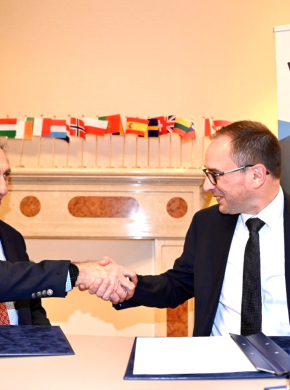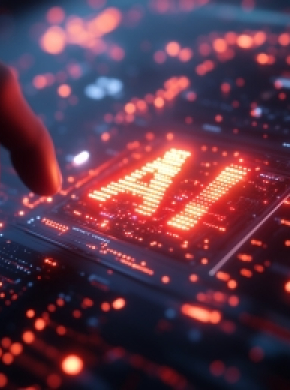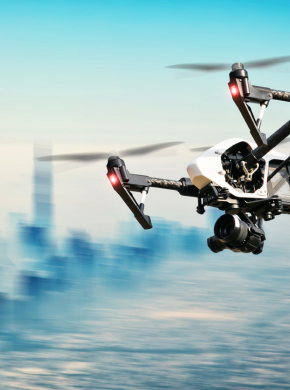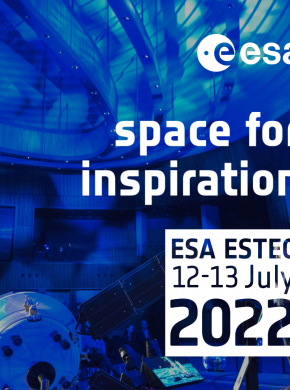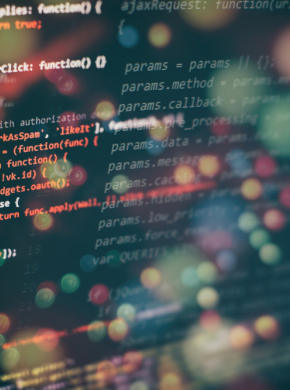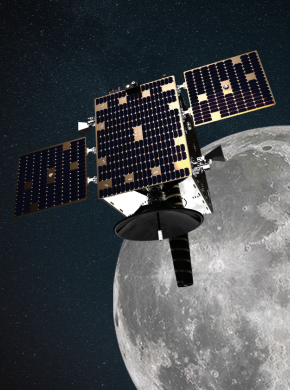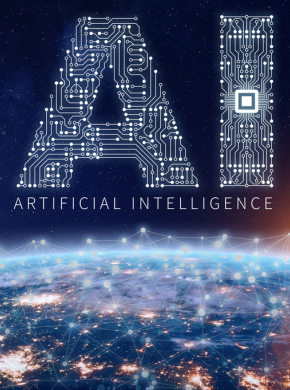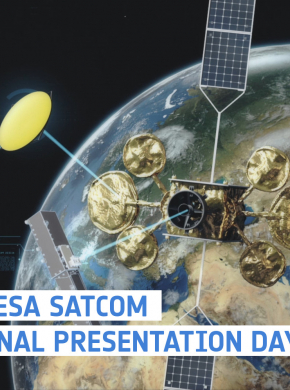Announcement of Opportunity: Environmental Impact of Satellite Communications (ARTES FPE 1A.122)
Opening date: 17 February 2023
Closing date: 14 April 2023
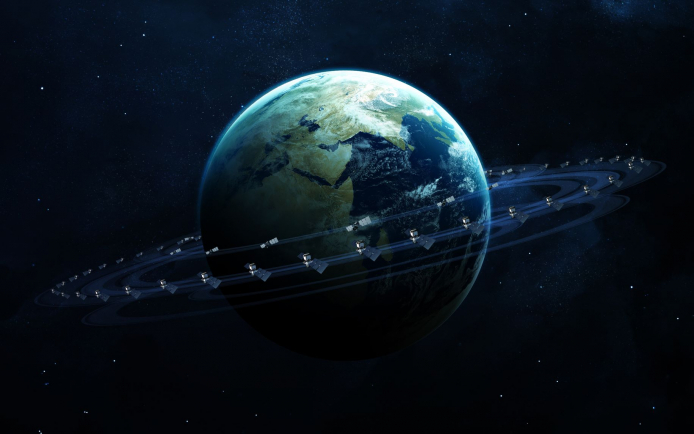
BACKGROUND
The last few years have seen a growing international focus on limiting the negative effects of mankind’s industrial activity on the Earth’s environment. Although (probably as a result of its relatively modest scale) the space sector has been given little consideration to date, increasing societal, governmental, and industrial attention is now being paid to the environmental impact of space activity. With the private sector emerging as the dominant source for new space missions, the role of commercial businesses in ensuring sustainable practices in the space sector is becoming ever more important. Many of the sector’s largest companies and spacecraft operators have announced a commitment to sustainable business models, both in-orbit and on the ground, but such companies must always balance sustainability goals with commercial pressures.
The European Commission’s “European Green Deal” policy initiative tacitly acknowledges the sometimes-contradictory nature of these goals when it states that “companies making ‘green claims’ should substantiate these against a standard methodology to assess their impact on the environment”. As one of the leading space applications, there is therefore a need for a clear and impartial understanding of the net impact that the satellite communication (satcom) sector has on the environment, in order to inform future policy and strategic development decisions within both government and industry.
OBJECTIVES OF THE ACTIVITY
The proposed activity seeks to assess the net impact of satcom service provision on the environment, both in terms of the direct consequences (harm) of satellite production, launch, operations, and disposal, as well as the (beneficial) effect of providing satellite services. The activity would follow a similar philosophy to that defined in the OECD document:
- Tier 1 effects would be explored through an initial LCA exercise. The assessment would cover two representative broadband satcom systems, one operating in GEO and one in NSGO, and both capable of providing a similar level of service. This analysis will include their space, launch, ground, and user segments as well as their operations. To generate a complete overview, this investigation should also include a comparative assessment of a terrestrial system providing similar functionality. As an outcome of the LCA, the study will highlight the elements of the satcom lifecycle that have the greatest environmental impact (“hot-spots”), as well as identify the most effective and easy-to-implement actions to reduce those impacts, with the aim of providing suggestions for rapid improvement.
- Secondly, the study should seek to identify and quantify the environmental benefits provided to society by satcom services, such as more efficient resource usage, lessened travel, etc. Given the perceived difficulty in defining such benefits, these Tier 2 effects are expected to be analysed and consolidated by performing a literature survey of the broader benefits of telecommunications to our society and extracting the proportional benefits of satcom systems. The activity should also attempt to identify the Tier 3 effects of satcom service provision, but as this assessment is expected to be highly subjective, no detailed quantification is expected at this stage.
- Thirdly, the results from the previous two elements should be combined and analysed to create an overall assessment of the net impact or contribution that satcom makes to the natural environment. An important element of the activity would be the identification of information gaps and an assessment of the quality of the available data. This will allow the formulation of a preliminary set of recommendations to industry for their systematic collection, and potentially help define follow-on ARTES 4.0 activity.
The primary outcome of the activity would therefore be an improved appreciation of the net impact that satcom service provision has on the broader natural environment. This may be used to inform the future development of such systems and serve as an input to influence public initiatives and decision making. In addition, the study would result in a better understanding of the available data in this domain and would identify an initial group of measures applicable to satcom production and operations that would in turn result in a demonstrable improvement of the sector’s environmental footprint.
The work will involve frequent discussions with the ARTES and the CleanSpace team to define the strategy and methodology used, and schedule for producing the various items requested. Adjustments resulting from these iterations wall be considered within the technical baseline.
WHAT WE ARE LOOKING FOR
We are looking for experts in environmental assessments & engineering. A background in performing Life Cycle Assessments (LCA) in the space sector is key. Furthermore, Spacecraft Integrators & Operators will play a vital role in this activity. Finally, Mobile Network Operator(s) would greatly complement the expert team or consortium we are looking for to perform this endeavour.
ABOUT THIS OPPORTUNITY
The Invitation to Tender (ITT) is open from 17 February 2023 to 14 April 2023 for a period of 8 weeks.
Proposals can be submitted via esa-star (please find link below).
esa-star Publication.
ABOUT THE ARTES FUTURE PREPARATION PROGRAMME
ARTES FP is a key programme element, in the beginning of the ARTES ‘feeding chain’ that offers the possibility to acquire knowledge on future satcom market perspectives, investigate future system concepts and prepare initial ‘dossiers’ on strategic initiatives; that cannot be developed usually at every Member State’s level. It is based on the concept of a European common effort to produce quality results to set the future of SatCom.
You can find more information in the link below:
https://artes.esa.int/future-preparation
NEWS AND EVENTS
ESA and Viasat towards a Direct-to-Device partnership
The European Space Agency (ESA) and Viasat announced an agreement to work together towards a public-private partnership for a direct-to-device project. As part of ESA’s direct-to-device initiative, the partnership…
European Space Agency kicks off groundbreaking generative AI project for satellite communication de…
Applied Data Science Partners (ADSP) is running a study on behalf of ESA to explore how generative artificial intelligence (AI) can transform satellite system design processes.
Opportunity: Concepts for ultra-large aperture antennas (ARTES FPE 1A.113)
Satellite antenna size and the data throughput achievable in a satellite communications channel are directly related, but the benefits from an increased aperture size can also be used to enable access to smaller ground antennas or to improve…
Opportunity: Towards Standardised Inter-Satellite Link Solutions (ARTES FPE 1A.116)
There has been a steady growth in the number of new satcom systems announcing plans to make use of RF Inter-Satellite Link technology. In addition to reducing the complexity and cost of the associated terrestrial infrastructure, ISL…
Opportunity: Advanced Broadband Satcom Solutions for Rotary Wing Aircraft (ARTES FPE 1B.136)
Despite steady order growth for helicopters and an almost exponential growth in rotary wing UAVs worldwide, outside of military and defence applications the utilisation of satellite connectivity onboard such rotary wing aircraft is still somewhat…
REISSUED - Opportunity: Single Channel Full Duplex Techniques for Satellite Communications (ART…
In most satellite communication systems, full duplex operation (i.e., simultaneous transmit and receive functionality) is achieved by using two separate frequency channels with spectral filtering employed to achieve the required isolation between…
Space for Inspiration: Business Edition 2022
Sign up now to join the growing community to discuss the future of commercialisation in exploration. This event is a must for key players in commercialisation ranging from private industry, to public organisations and space agencies to financial…
Opportunity: Open-Source Satellite Constellation Simulator
The communications satellite manufacturing industry is going through a period of profound change. For decades, the primary source of sector revenue has been from building systems designed to operate in geostationary orbits. Within the last few…
The Moon – where no satnav has gone before
The test version of a unique satellite navigation receiver has been delivered for integration testing on the Lunar Pathfinder spacecraft. The NaviMoon satnav receiver is designed to perform the farthest ever positioning fix from Earth,…
Opportunity: The Application of Neuromorphic Processors to SatCom Applications
Artificial Intelligence (AI) is set to play a major role in the automation of future satcom systems, enabled by the significant advances in Machine Learning (ML) techniques of recent years. However, the computer processors that AI algorithms will…
Final Presentation Webinar - ARTES Future Preparation Machine Learnin…
ESA would like to invite you to the Final Presentation Webinar of the ARTES Future Preparation (FP) activity Machine Learning and Artificial Intelligence for Satellite Telecommunications.
This Webinar will take place on the 9th of June at…
ESA Satcom Final Presentation Days 2019
This is a unique opportunity to gain an overview of all the recently completed activities and to discuss them with colleagues from both ESA and industry across the satellite telecommunications sector.



